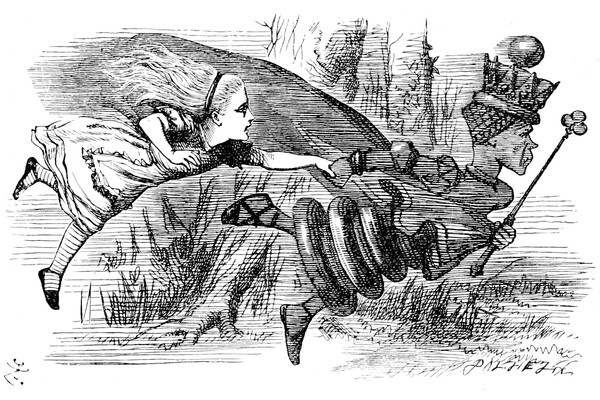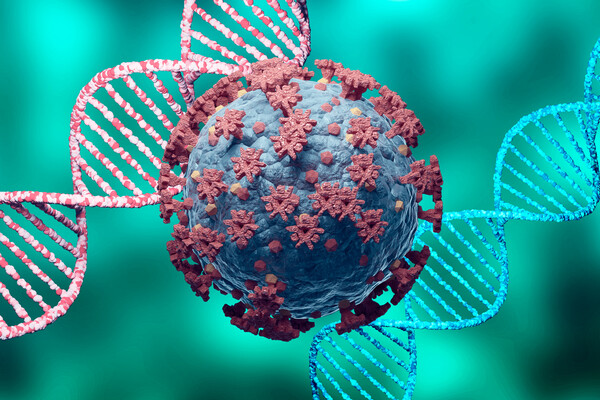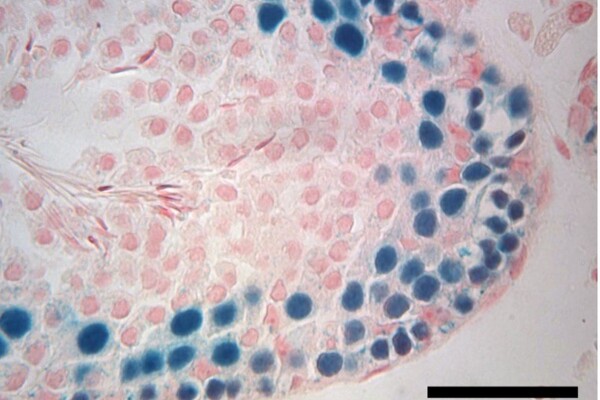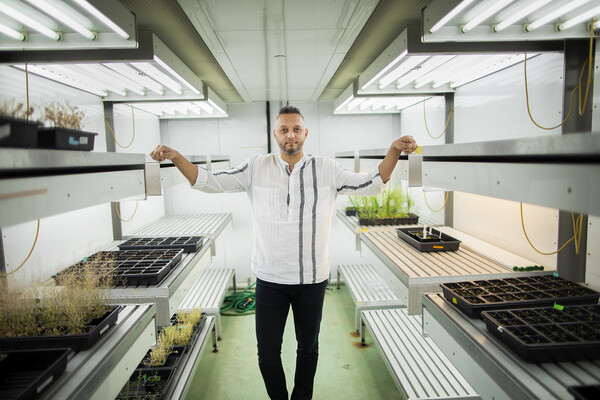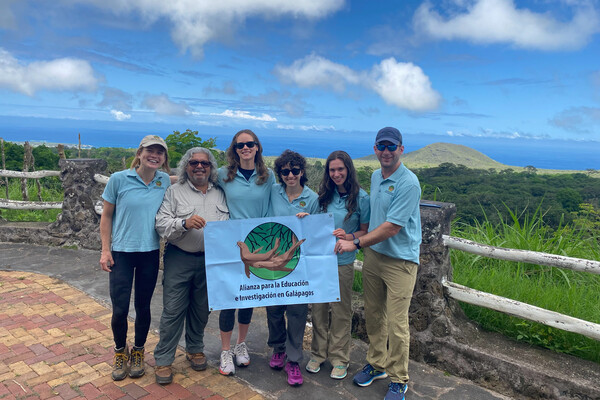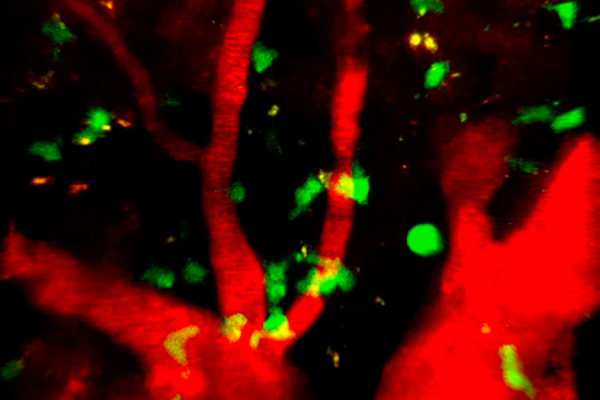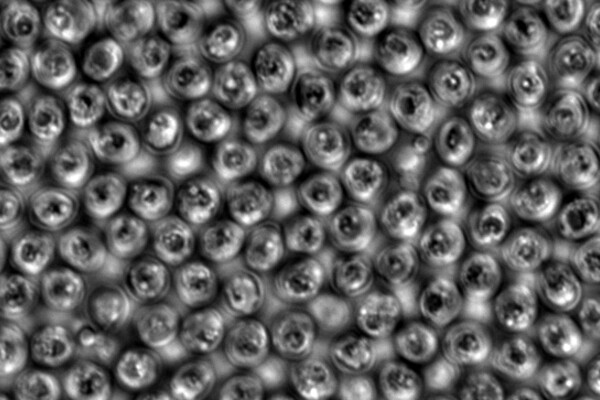5/10
Biology
Lighting the way for rare disease
After finding out about STAC3, a rare disease without a cure, biology major Magnolia Wang of the College of Arts and Sciences set out to raise awareness and advocate for those struggling with the illness.
An arms race that plays out in a single genome
School of Arts & Sciences biologist Mia Levine and Cara Brand, a postdoc, shed light on an example of coevolution in fruit flies that has implications for human health.
Genomic differences selected through evolution may offer clues as to why COVID-19 outcomes vary widely
A team from the University of Pennsylvania analyzed genomic data from global populations, including thousands of ethnically diverse Africans, to identify genetic variants that may be associated with clinical COVID-19 outcomes.
Frozen testicular tissue still viable after 20 years
Many pediatric cancer treatments, though lifesaving, can compromise future fertility. In a new study in rodents, researchers from the School of Veterinary Medicine showed that testicular tissue frozen for more than 20 years could give rise to sperm.
With plants as a model, studying the ‘complexity and reproducibility’ of developmental biology
In his first year at Penn, biologist Aman Husbands is busy working on projects aimed at illuminating the molecular mechanisms that govern plant development.
In the Galápagos, training community scientists to monitor water quality
Both dense human populations and a plethora of wildlife can pose a challenge to marine and public health in the Galápagos Islands. With portable, user-friendly PCR technology, Penn faculty and students are training local scientists and school children to perform water quality research.
The future of forests
Faced with an onslaught of changes—heat, drought, fire, flood, pests, and disease—forests are under stress.
Regulating the regulators of the immune system
Research led by School of Veterinary Medicine scientists reveals a new layer of complexity with which the immune system finds a balance between controlling pathogens and protecting healthy tissue.
Revising the lifecycle of an important human parasite
Researchers from Boris Striepen’s lab in the School of Veterinary Medicine tracked Cryptosporidium in real time, creating a new paradigm for how the widespread parasite reproduces in a host.
The changing face of portraiture at Penn
Efforts around campus aim to diversify those honored in portraits and rethink how to approach representation through art.
In the News
Man does DNA test, not prepared for what comes back ‘unusually high’
César de la Fuente of the School of Engineering and Applied Science and Perelman School of Medicine says that Neanderthal DNA provides insights into human evolution, population dynamics, and genetic adaptations, including correlations with traits such as immunity and susceptibility to diseases.
FULL STORY →
Bird flu virus has been spreading in U.S. cows for months, RNA reveals
Louise Moncla of the Veterinary School of Medicine says that the bird flu virus is clearly being transmitted to cows in some way.
FULL STORY →
When is the best time to take L-theanine—morning or night?
According to Colleen Tewksbury of the School of Nursing, research suggests that L-theanine may help support stress management, sleep, and potentially weight management.
FULL STORY →
Is the flu shot market a slam dunk for mRNA vaccines? Experts aren’t so sure
Scott Hensley of the Perelman School of Medicine is working on a flu vaccine to provide protection against 20 subtypes of flu that may pose a pandemic threat in the future.
FULL STORY →
Thanks, Neanderthals: How our ancient relatives could help find new antibiotics
A study by César de la Fuente of the Perelman School of Medicine and colleagues used AI to recreate molecules from ancient humans that could be potential candidates for antimicrobial treatments.
FULL STORY →
Long COVID brain fog may originate in a surprising place, say scientists
A study by Christoph Thaiss and Maayan Levy of the Perelman School of Medicine and colleagues finds that long COVID’s neurological symptoms, like brain fog, memory loss, and fatigue, may stem from serotonin reduction.
FULL STORY →




